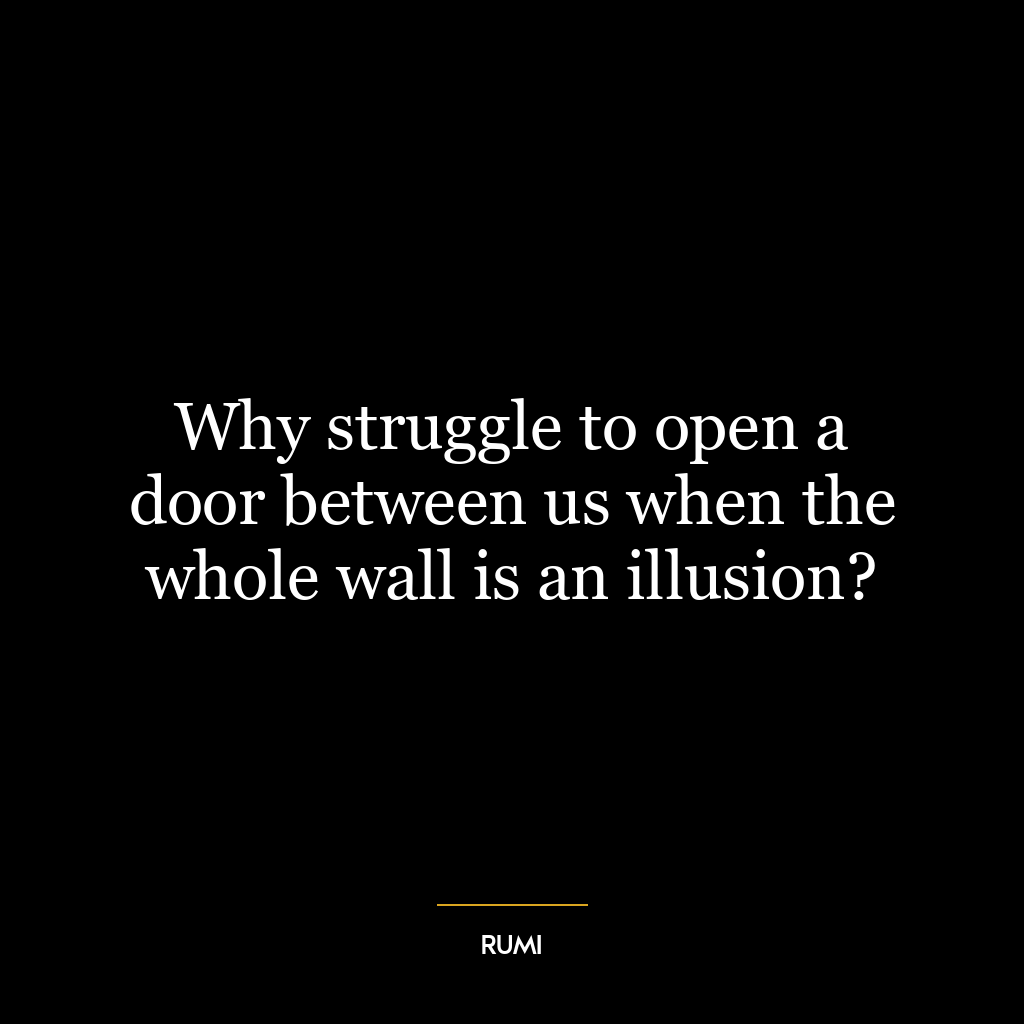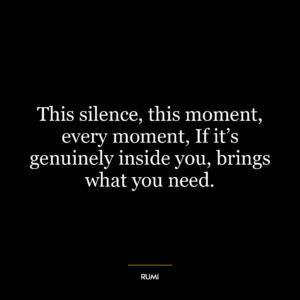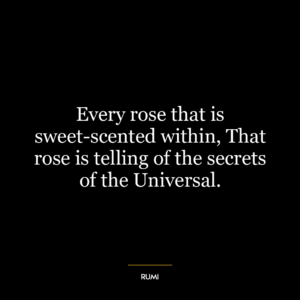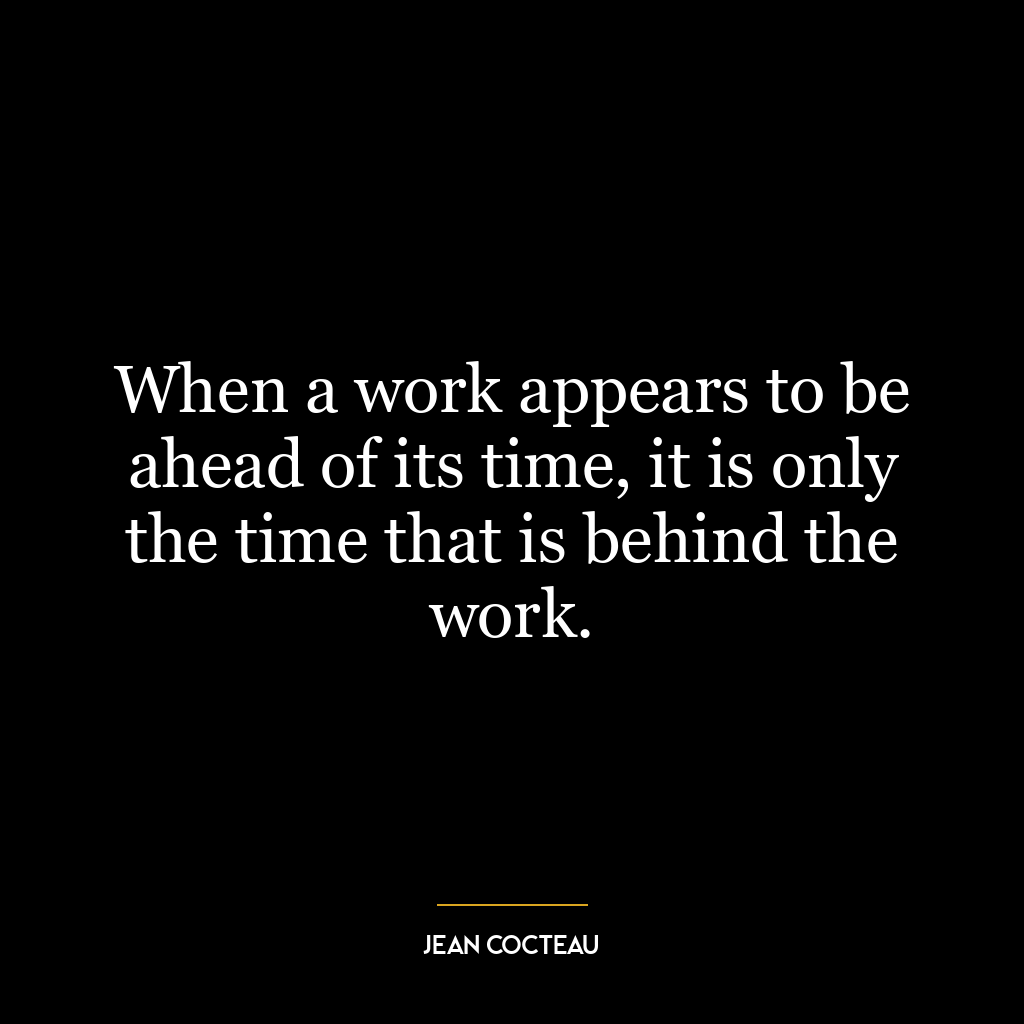This quote is a profound metaphor for the barriers we perceive in our relationships and interactions with others. The ‘door’ signifies the small efforts we make to connect or communicate with others, while the ‘wall’ represents the larger, imagined barriers or differences we perceive to exist between us.
Rumi is suggesting that these walls are merely illusions, created by our minds or societal norms. They might be differences in culture, language, religion, race, or social status. We often struggle to open small doors of understanding or compromise within these walls, when in fact, the whole wall itself doesn’t exist. It’s a call to acknowledge the fundamental human connection and shared experiences that bind us all, regardless of our perceived differences.
In today’s world, this quote is highly relevant. We are often divided by beliefs, politics, and other societal constructs that create walls between us. Instead of trying to open small doors of understanding within these walls, we can strive to realize that these walls are illusions. This realization can lead to greater empathy, understanding, and unity among people.
In terms of personal development, this quote encourages us to question the barriers we perceive between ourselves and our goals or between us and other people. These barriers could be fear, self-doubt, or prejudice. By recognizing these barriers as illusions, we can overcome them and achieve personal growth. It teaches us not to limit ourselves based on these perceived barriers, and instead, embrace the limitless possibilities of human connection and personal achievement.















